Drive into luxury. Elevate every mile with unmatched vehicles for unforgettable journeys.
About the Initiative

Creating a Path Forward.
We provide more than a place to stay, we offer tools, support, and purpose to rebuild lives after incarceration.
The Pathways Pilot Program exists to challenge the cycle of incarceration by offering a structured, therapeutic, and community-integrated path forward for justice-impacted individuals especially those convicted of sex offenses. Despite claims of rehabilitation, our current system often fails to address the root causes of criminal behavior, relying instead on long sentences, post-release surveillance, and stigma that fuels reoffense by design. Pathways is different. We start with treatment and accountability inside confinement, and we carry that support through transition and reintegration. The program blends mental health services, addiction recovery, vocational training, transitional housing, and advanced monitoring technology into one coordinated effort. We work hand-in-hand with law enforcement, probation, and community organizations to build trust, transparency, and safety. The goal isn’t just release its successful reintegration. Because if we truly believe in second chances, we must build systems that make them a reality.

Redefining Reintegration.
Built for accountability, dignity, and real second chances this is a model that works from the inside out.


Full-Spectrum Support
Therapy, housing, job training, and recovery in one place.
We don’t just offer services we coordinate them into a structured, measurable path back to society.

Technology-Enabled Reintegration
Biometric monitoring + real-time compliance dashboards.
We use modern tools to promote accountability and transparency, not punishment.
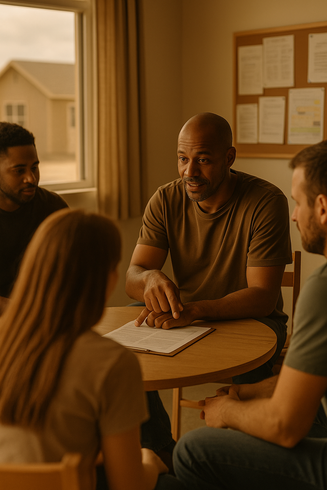
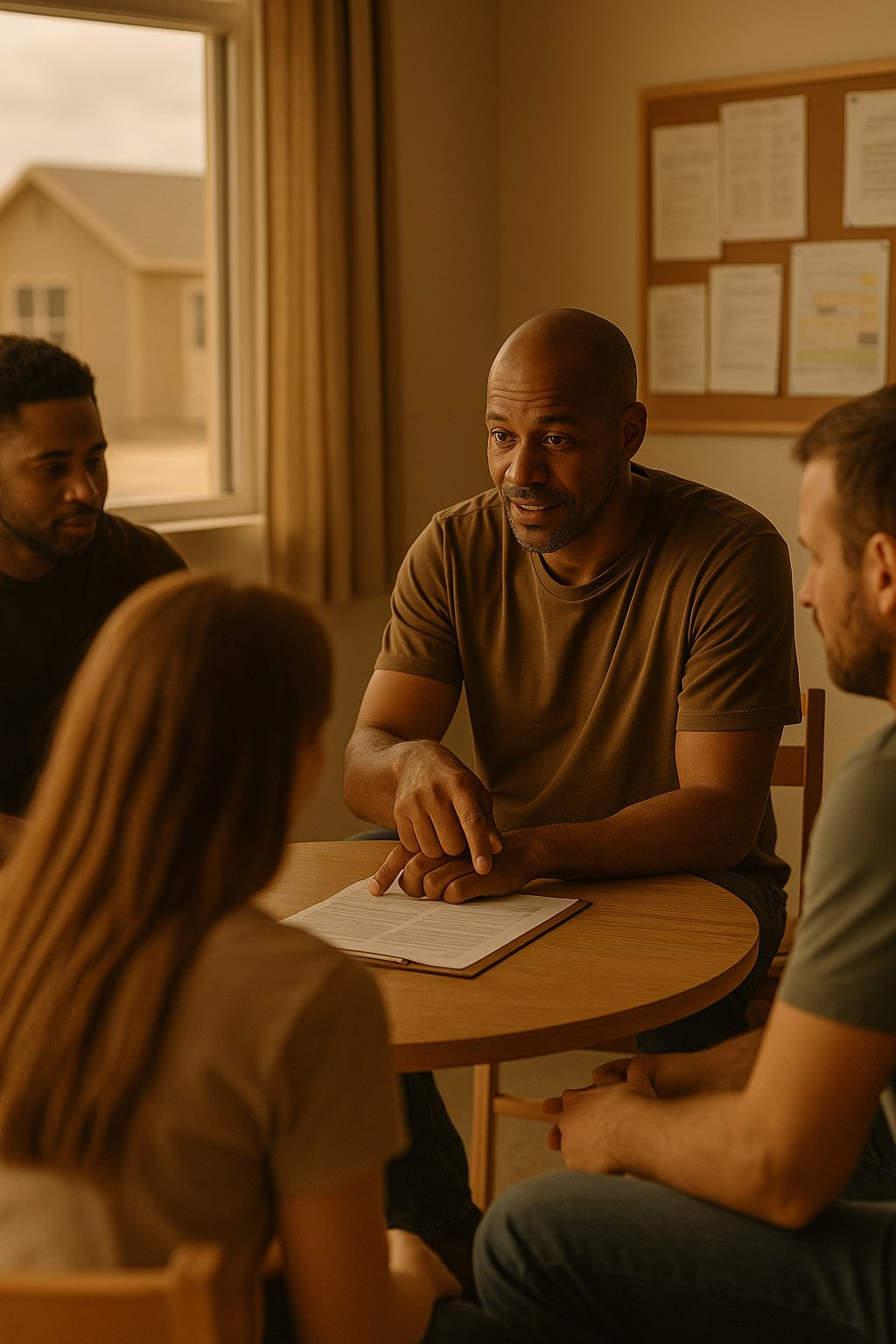
Built With the Justice-Impacted
Guided by lived experience + professional expertise.
Our team includes those who’ve walked the path because change works better from the inside out.
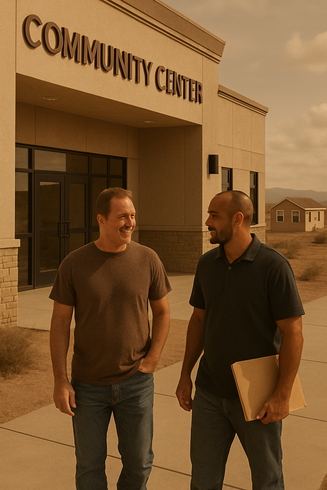
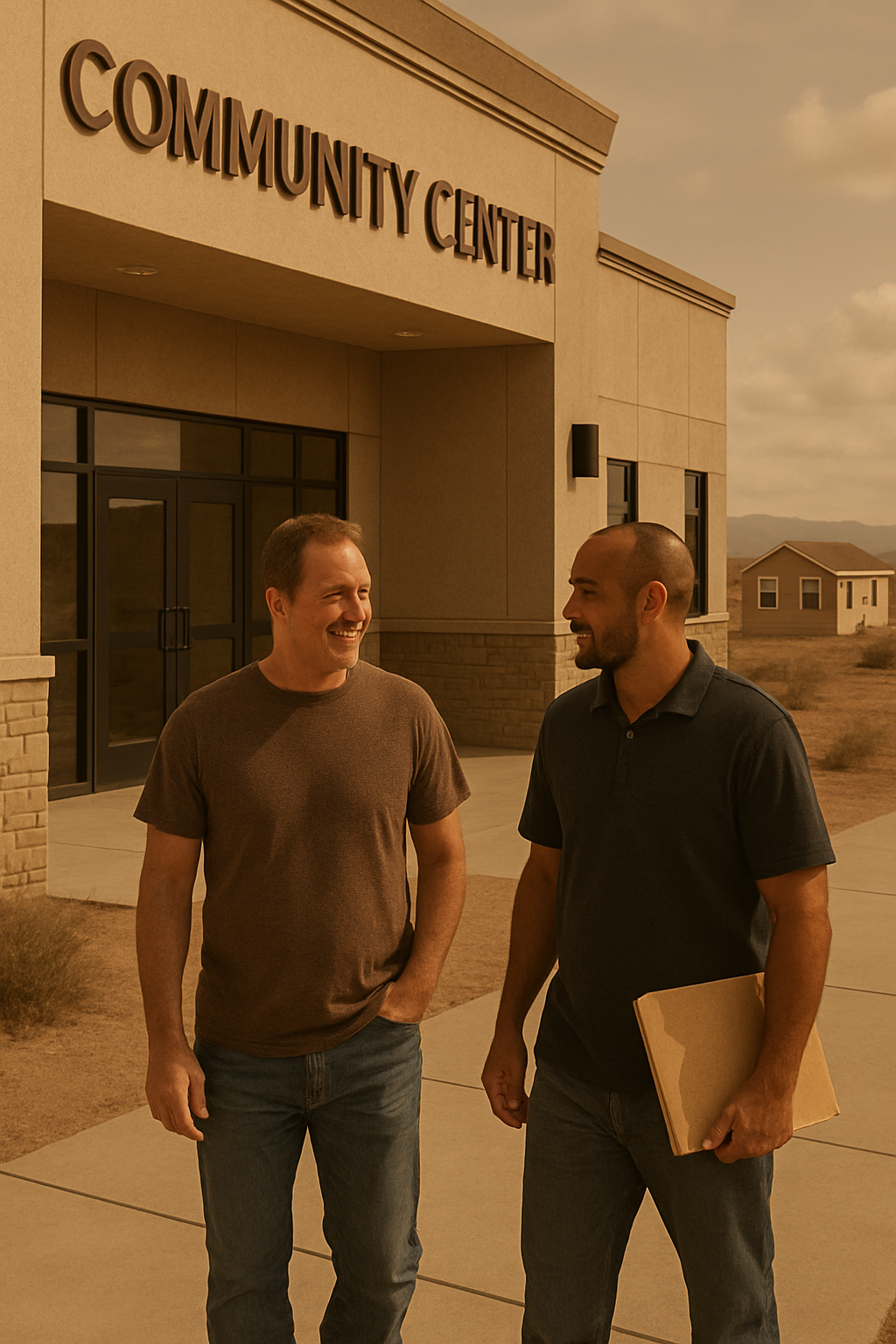
Reintegration, Not Just Release
From confinement to community with continuity.
We begin support before release and stay connected through transition and beyond.
What Probation and Corrections Officers Are Saying

I began my corrections career in 2019. I have been a dorm, main-control, and mailroom officer. Due to my academy training I was very cautious interacting or even speaking with the inmates. I grew to believe after some inmates were inappropriate that those labeled “sex-offenders” were “creepy and nasty”. I was asked if I preferred to work with general population, so I took some shifts on a GP yard. I was miserable, these inmates were incredibly disrespectful and more explicit and nasty than those on the SO yard.
Once I returned to the SO yard, I realized that the majority did not act this way, you still must be mindful overall, but the change started with myself. When I became a case manager I was terrified I would be assigned to a GP unit, where the inmates were openly inappropriate in their behavior.
When people become aware of what type yard I work on, I hear terrible things. This has had a serious impact on how I now view many things in life. I would rather work on a SO yard than a GP yard. I do believe that the “blanket” stipulations put on this classification of inmate is overbroad and more serious than it needs to be. From my personal experience interacting with these individuals I feel each case should be specifically evaluated as not all of these inmates are monsters.
There is no registry for murderers, thieves, or drug dealers, so why is there a registry for those whose crime has a sex designation? Pathways Pilot Program provides the safety and security these former inmates deserve and need to reenter our communities safely. I am surrounded by it every day, Arizona can do better
– Corrections Case Manager
I began my corrections career in 2019. I have been a dorm, main-control, and mailroom officer. Due to my academy training I was very cautious interacting or even speaking with the inmates. I grew to believe after some inmates were inappropriate that those labeled "sex-offenders" were "creepy and nasty". I was asked if I preferred to work with general population, so I took some shifts on a GP yard. I was miserable, these inmates were incredibly disrespectful and more explicit and nasty than those on the SO yard.
Once I returned to the SO yard, I realized that the majority did not act this way, you still must be mindful overall, but the change started with myself. When I became a case manager I was terrified I would be assigned to a GP unit, where the inmates were openly inappropriate in their behavior.
When people become aware of what type yard I work on, I hear terrible things. This has had a serious impact on how I now view many things in life. I would rather work on a SO yard than a GP yard. I do believe that the "blanket" stipulations put on this classification of inmate is overbroad and more serious than it needs to be. From my personal experience interacting with these individuals I feel each case should be specifically evaluated as not all of these inmates are monsters.
There is no registry for murderers, thieves, or drug dealers, so why is there a registry for those whose crime has a sex designation? Pathways Pilot Program provides the safety and security these former inmates deserve and need to reenter our communities safely. I am surrounded by it every day, Arizona can do better
- Corrections Case Manager
What Probation and Corrections Officers Are Saying

"Pathways fills the gap between release and reality. It gives my clients a real shot."

Every dollar builds a future and tears down the cycle of incarceration.
Our mission is focused on reducing incarceration cycles through support, stability, and opportunity.
Your support funds housing, therapy, training, and real second chances for justice-impacted individuals.


$6.1 million needed to build Arizona’s first reentry community for justice-impacted individuals.
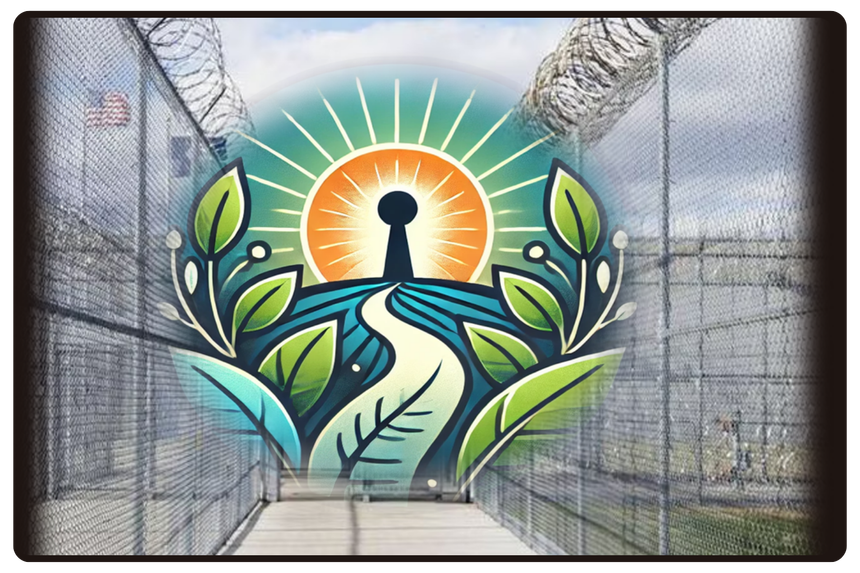
$6.1M Capital Launch
Funding the land, construction, and startup operations for the first Pathways Reintegration Center.
Transitional Units
Tiny homes and trailers designed for long-term, monitored, and dignified transitional housing.
20+ Jobs Types Created
Onsite roles for justice-impacted individuals: security, culinary, agricultural, admin, construction, and peer support.
100 Residents in Year 1
Targeting 100 participants through a phased, 12–24 month therapeutic, vocational, and telehealth for non-residents through their reintegration process.


